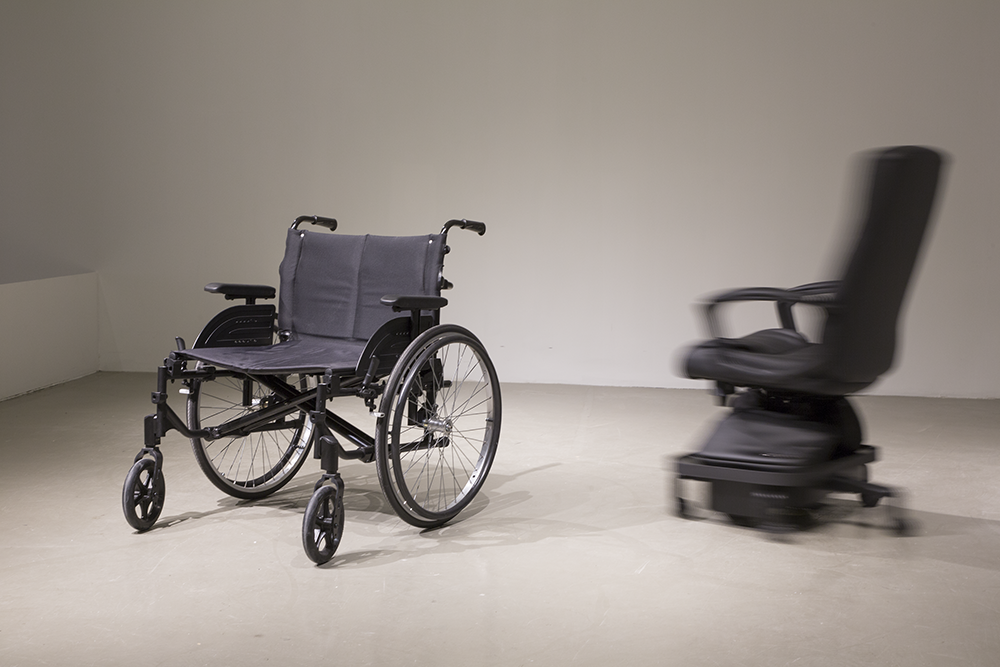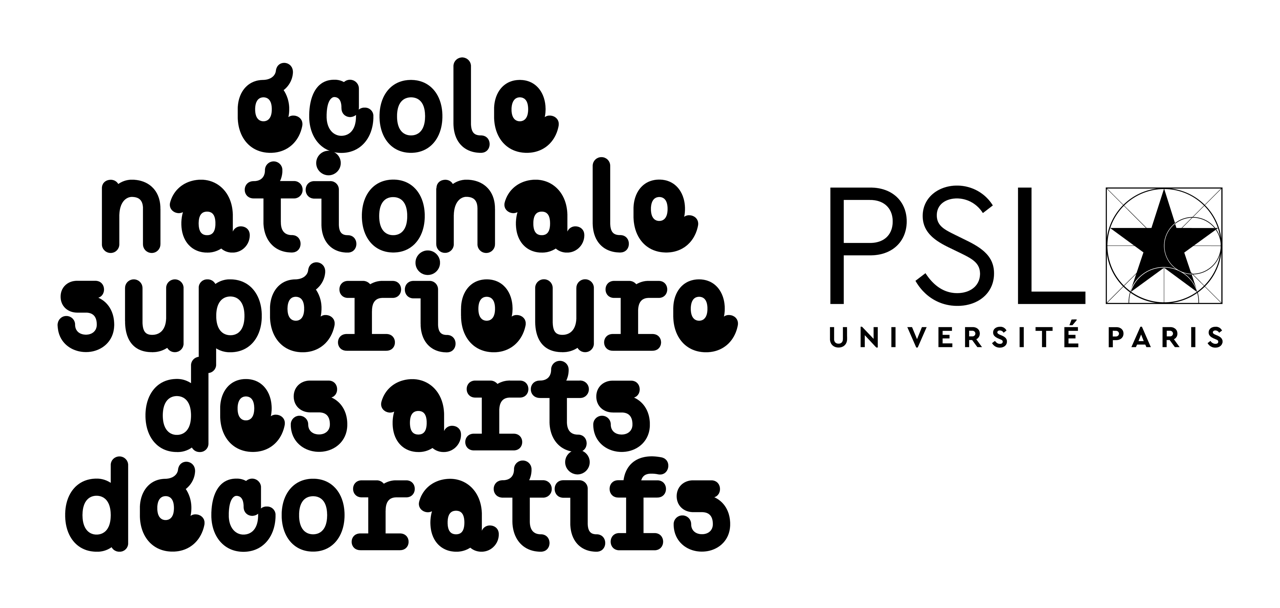As part of the Scientific Days, Département AS2M, Institut FEMTO-ST
(Franche-Comté Électronique Mécanique Thermique et Optique — Sciences et Technologies),
June 25, 2019.

As part of the research on “Behavioral Objects” by the Reflective interaction group at EnsadLab,
research laboratory of Ecole nationale supérieure des Arts Décoratifs, Université PSL,
Paris. “Invisible Man” exhibition, Wood Street Galleries, Pittsburgh, April 2019
Behavioral Objects, artistic approach to movement in non-figurative robotics
If we start from the hypothesis that many of the objects in our daily lives could be endowed with the capacity for movement, action, and reaction to their environment, indeed even autonomy, how can we attribute a personality to non-figurative objects, communicated through a behavioral dimension, in order to stimulate a “human-object” relationship based primarily on emotions and empathy rather than on utilitarian ends? To the extent that these non-anthropomorphic, non-zoomorphic, and even non-biomorphic robotized objects have no expressive capacities arising from their form, how can they be granted a behavioral or even living character if not through animation, meaning the ability to move? It is therefore necessary to define, study, formalize, implement, and experiment with that ability, using an iterative methodology that is practical, reflexive, and multidisciplinary, allying engineering (robotics), art, cognitive science, and anthropology.
Samuel Bianchini presents this project and this notion as well as numerous examples from the field of art and from research and creations carried out by himself and by his research group Reflective Interaction. A comparison of this approach to the development of the Soft Robotic is stressed upon — with a particular consideration of the movement of the materials themselves, thus introducing the notion of “Behavioral Matter”.
